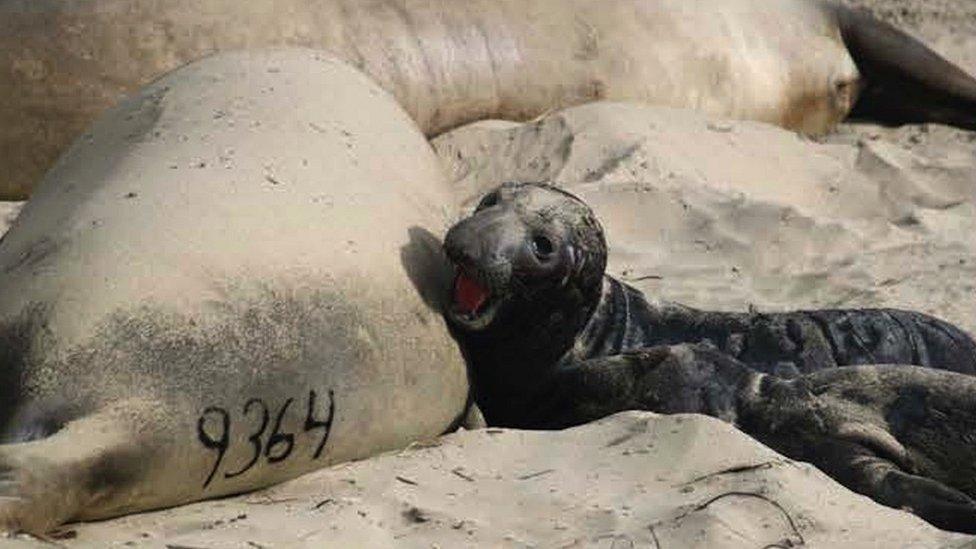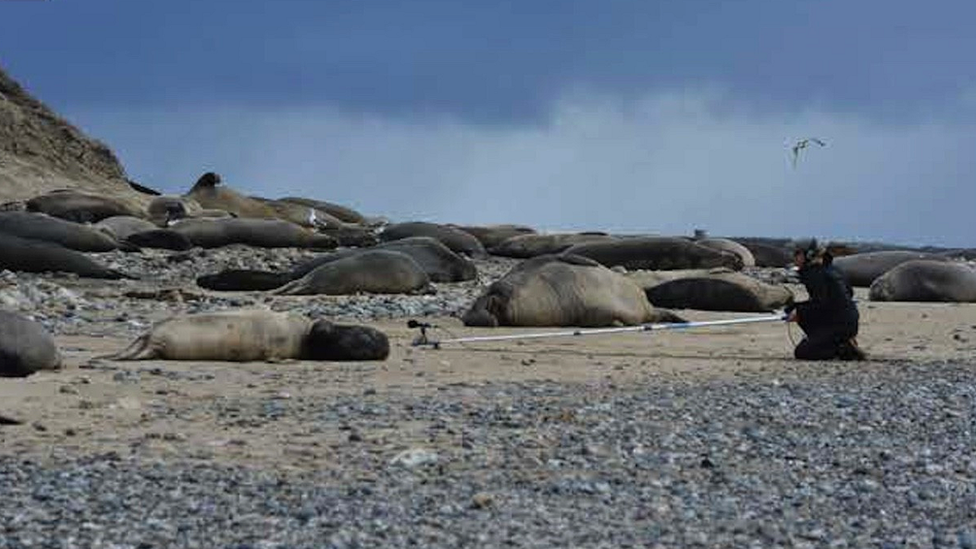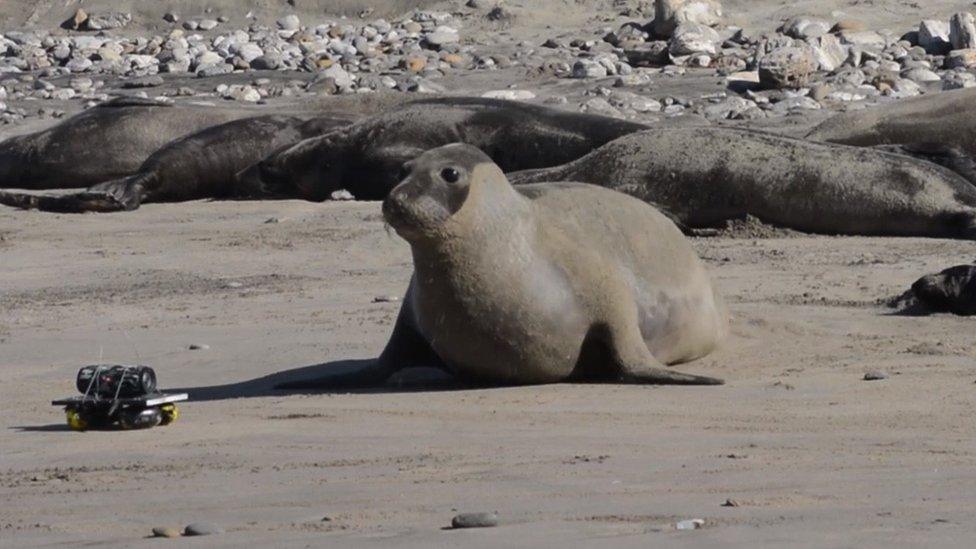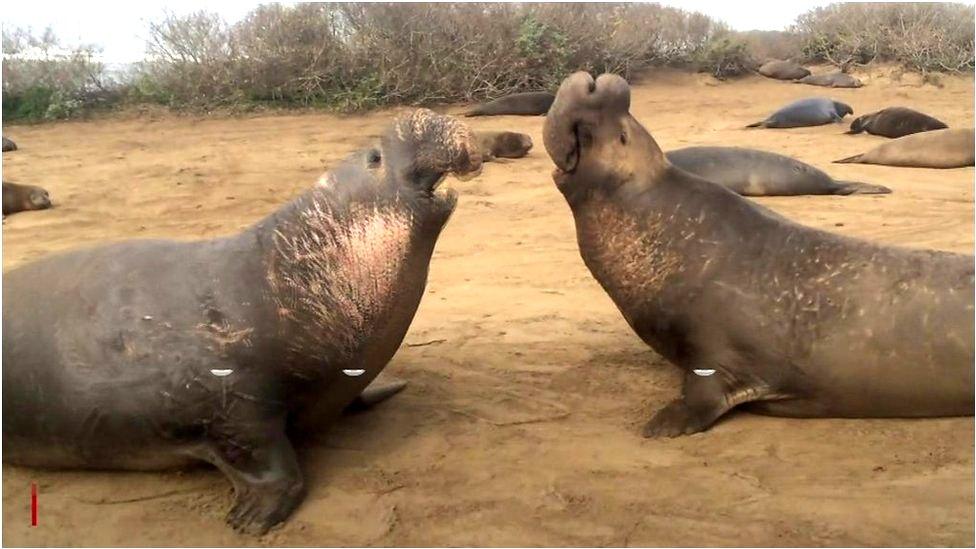Mother seals recognise pup's voice at two days old
- Published

The researchers marked mothers and pups to track them
"It's a cacophony in a seal colony," explains Dr Caroline Casey, where hundreds of mums and pups call at once.
Now, research led by California-based scientists has revealed that mother elephant seals can pick out their own baby's voice just two days after pups are born.
This ability helps pups - and mothers - survive during a precarious time.
But it has left researchers puzzling over why female seals often feed each other's pups.
The findings are published in the Royal Society journal Biology Letters., external

Social distancing: Researchers used long boom poles to record individual pups with as little disturbance as possible
The study, led by Dr Juliette Linossier, required the international team of scientists to "sneak" microphones into the seal colony to avoid disturbing mothers and pups.
"Females fast for the entire month they are nursing," explains Dr Casey, who is part of the team and based at the University of California Santa Cruz. "So it makes no [evolutionary] sense for them to use their resources on another mother's pup.
"But at this site [the colony in California] that we study, there have been a lot of observations of females feeding pups not related to them."
Pup playback
Dr Casey has studied vocal communication in elephant seals for a decade. So she and her colleagues designed an audio experiment to find out if the animals were able to recognise their own babies amid the noise of a breeding colony.
With a microphone on the end of a long pole, the scientists recorded calls of individual pups and played the recordings to mother elephant seals, using a small speaker.
The researchers then monitored the mothers' responses to recordings of their own pups, as well as to a series of calls from a similar-aged pup. Mothers were much more attentive - looking at and moving towards the small speaker to investigate - if it was playing the sound of their own offspring.

A northern elephant seal mother moves towards a speaker playing the sound of her pup's call
"It was dramatic - we see the recognition after just a day or two," said Dr Casey.
This early recognition makes sense, the researchers say, because the relationship between mother and newborn elephant seal is extremely physically dependent.
When the pups are suckling, mothers lose around half their body mass, while pups undergo a seven-fold increase in body weight, because of the "exceptional fat content" of their mother's milk.
However, Dr Casey suggests humans may have played an unexpected role in the elephant seals' urge to feed other pups, of, arguably, closely-related females.
In the late 1800s, the species was hunted to near extinction. "So we think all of the individuals alive today - around 300,000 animals - are related to about 20 animals that survived," said Dr Casey.
"So the genetic similarity between all elephant seals is very high."
So are they more likely to feed the pups of sisters or cousins? Could that behaviour be linked to an extreme population bottleneck caused by humans?
"That's something we would like to investigate," Dr Casey said.
The rather rude sounds of an elephant seal
Follow Victoria on Twitter, external
Related topics
- Published23 July 2017
